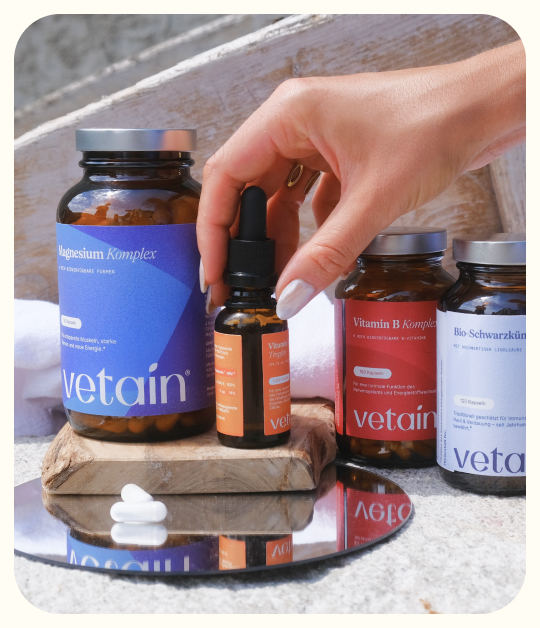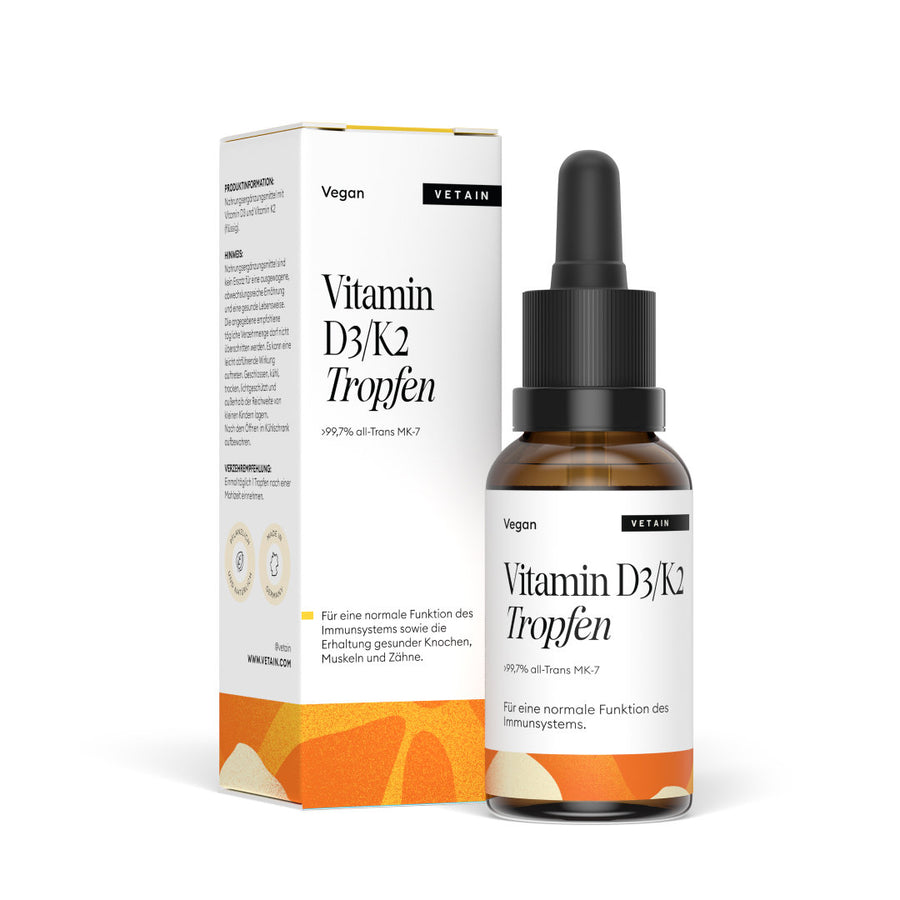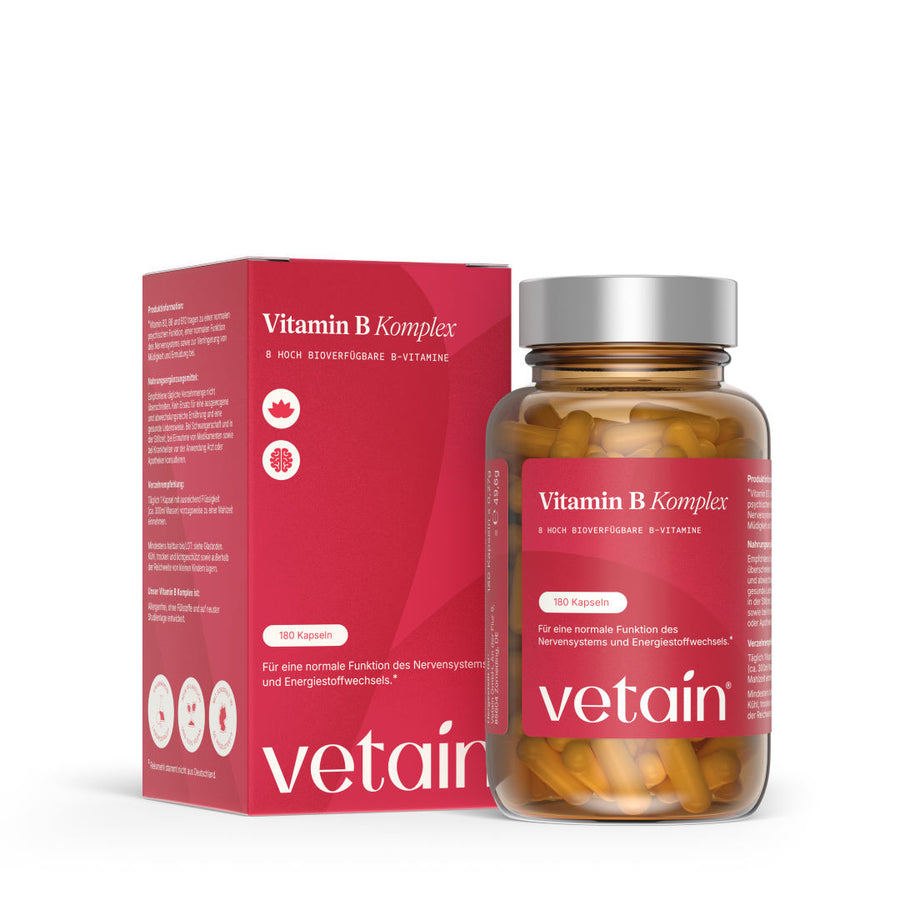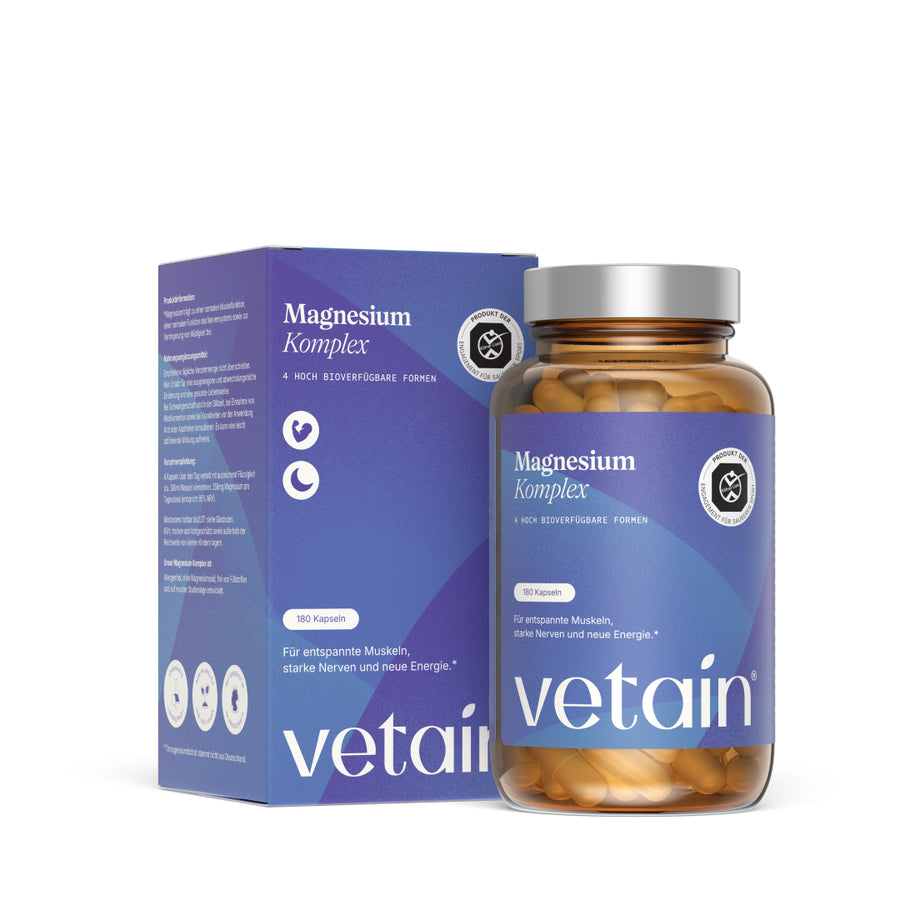Which supplements should you take? Good question—and one many people ask in everyday life. Especially when you’re standing in the drugstore in front of the never-ending aisle of supplements and vitamins from A to Z are smiling at you.
Dietary supplements play an increasingly important role in our daily lives. A little powder here, a tablet there. What many don’t know: taking the wrong supplements can also have negative effects. It’s important to be well informed and to know which supplements you really need. Today we’re tackling the questions: Which supplements should you take? Which supplements make sense? And what makes a good supplement?
Your knowledge to go: Which supplements should you take?
Supplements can fill nutrient gaps when diet alone isn’t enough—but they are no substitute for a balanced diet!
Which supplements make sense for you is individual and depends on your lifestyle, age, and diet.
Many people in Germany could benefit from supplementing vitamin D, omega-3 fatty acids, and using iodized salt.
What are supplements—and when are they useful?
Supplements are concentrated, dosed nutrients that can affect the body or nutritional status. That means nutrients like vitamins or minerals are packed into small pills, powders, capsules, effervescent or other tablets, and liquids. They can help supply the body with nutrients. But they’re not a replacement for a healthy diet—just a supplement.
Bad news for veggie dodgers: supplements are not an alternative to carrots, broccoli & co.!
So, back to the topic: Which supplements should you take?
Overview: Which supplements should you take?
Quick note first: what you should take is highly individual and depends on your lifestyle, diet, and more. We can’t give tailored dose recommendations here—sorry!
But we’ll give you a brief overview of common supplements and explain what may make sense for whom.
Disclaimer: the following information applies to healthy people, is general guidance, and does not replace individual advice.
Okay—really now—which supplements should you take?
General population
In Germany, certain nutrients are often not sufficiently covered by diet alone: iodine, vitamin D, and omega-3 fatty acids.
Iodine
It’s generally recommended to use iodized table salt and foods made with it (e.g., bread) to ensure adequate iodine. Extra iodine supplements are usually only necessary in special situations such as pregnancy. For everyday life, iodized salt is sufficient.
Iodized salt isn’t a “supplement” in the classic sense, but we list it here because intake matters and many people still aren’t aware.- Vitamin D
Vitamin D is hardly obtained from food; it’s produced by the body when you’re in midday sun. The problem? Weather and lifestyle. Most of us don’t have time to sit in the sun at noon, and in winter the sun is a rare guest. Supplementation can therefore make sense year-round, especially in winter. Many people use combo products with vitamin D and K2.
Important: If you want to be sure you’re not over-supplementing, have your vitamin D level tested!
%-split_content-% Omega-3 fatty acids
Do you eat fish 1–2× per week? If yes, skip this part. If not, listen up: omega-3s are relevant in various body systems. EPA and DHA contribute to normal heart function at 250 mg/day. Unfortunately, these are mainly found in fish (and only small amounts in seeds, nuts, and certain oils). If you don’t eat fish regularly, omega-3 supplements might be suitable for you—available as capsules or oils. Besides fish oil, there are vegetarian and vegan algae-based options.
Now you’ve got a first impression of which supplements people might generally consider. What about different groups?
Women
Women’s needs are special and vary across life stages. We’ve created dedicated articles:
Which supplements should women take?
Which supplements should you take during pregnancy?
Have a read—it’s super interesting!
Vegetarian and vegan diets
In vegetarian and vegan diets, it can be difficult or impossible to get enough of certain nutrients. In these cases, supplements are your perfect companion.
Which supplements should you take if you’re vegetarian?
Possibly vitamin B12 + recommendations from the general population and other groups.
Also, regularly check for iron deficiency.
Vitamin B12 is mainly found in animal products (especially meat).
Iron from plant sources is often less well absorbed than animal iron. Combine plant iron with vitamin-C-rich foods (e.g., bell pepper) to boost absorption!
See our article “Supplements in a vegetarian diet” for more.
Which supplements should you take if you’re vegan?
Vitamin B12, zinc + recommendations from the general population and other groups.
Vitamin B12 is mainly found in animal products (especially meat).
Zinc can be obtained from plant foods like legumes, but vegans often have lower zinc levels.
Also keep an eye on calcium: choose calcium-rich or fortified foods and consider supplementing if you don’t reach intake recommendations.
Calcium is mainly found in animal products.
Regularly check for iron deficiency and monitor protein intake!
Plant iron is less well absorbed than animal iron. Combine plant sources with vitamin-C-rich foods to increase absorption!
Older adults (65+)
Nutrient needs change with age (e.g., protein requirements increase). Another reason to add a protein shake to Grandma’s and Grandpa’s order.
Eating habits also change—chewing can be harder, appetite may decrease, intake drops, or certain foods aren’t tolerated. That can compromise nutrient status. Supplements can help secure intake here too.
Which supplements should you take as you get older? The recommendations for the general population and the other groups still apply. Needs vary massively within the senior population, so broad tips are hard.
Nutrients that are often critical with age—on top of those already mentioned:
Vitamin B12
Calcium
Iron
Zinc
protein
Tip: track your diet for a few days (apps help) and see which nutrients you’re low on. First, try to improve intake via food; if that’s not enough, consider supplements (ideally after medical advice). Beware of potential interactions between some medications and supplements.
Which supplements to take in older age is highly individual—professional advice often helps.
Physically active people
In fitness, supplements take on a different role. Beyond vitamins and minerals, people also use BCAAs, EAAs, & more. We can’t cover everything here, but here’s a first look. Which supplements should you take if you train regularly?
General recommendations still apply, plus—for sports—zinc, magnesium, and protein can matter (e.g., for normal muscle function and maintaining muscle mass).
If you train intensely, creatine may be interesting. More in our creatine article.
Protein powders & more
A quick word on a special “supplement”: high-protein products. Athletes, older adults, and many vegetarians/vegans use shakes, bars, etc., to meet protein needs. They’re a convenient way to get more protein—just watch for clean, well-tolerated ingredients.
They’re not always necessary, but can be practical and make healthy eating easier.
After clarifying which supplements to take, here’s the next question: supplements—yes or no?
Supplements: pros & cons
Supplements can be helpful and contribute to your nutrient intake.
Still, don’t just take everything at random—first try to meet needs with a balanced diet. As said at the start, supplements are a supplement, not a replacement.
In our article “What are dietary supplements?” we go deeper into potential risks and important rules of thumb. And timing matters too—read more here: Wann sollte man Nahrungsergänzungsmittel einnehmen?
Conclusion: Which supplements do I need?
As you can tell, the question “Which supplements should I take?” isn’t easy to answer. Hopefully this gave you an overview so you feel less lost. For personal needs, professional advice is a good idea!
Want to build your own nutrient routine? Check out our shop for high-quality supplements!
%-product_content-%
Literature
BZfE (Bundeszentrum für Ernährung) in der Bundesanstalt für Landwirtschaft und Ernährung (BLE); Seeher, J.; Thiesmeier-Dormann, C. & Schmidt-Packmohr, C. (2023). Vitamine, Mineralstoffe und Co. Wann ist eine Nahrungsergänzung sinnvoll? In: Kompass Ernährung, 27(1).
DGE (Deutsche Gesellschaft für Ernährung e.V.) (o.J). Referenzwerte. https://www.dge.de/wissenschaft/
referenzwerte/
Du hast Fragen? Dann schreibe mir gerne eine Mail – ich freue mich, von dir zu hören! :)
The information shared in this article does not replace individual medical or nutritional advice.















 8 Min
8 Min
 Zuletzt aktualisiert am 30.10.2025
Zuletzt aktualisiert am 30.10.2025





